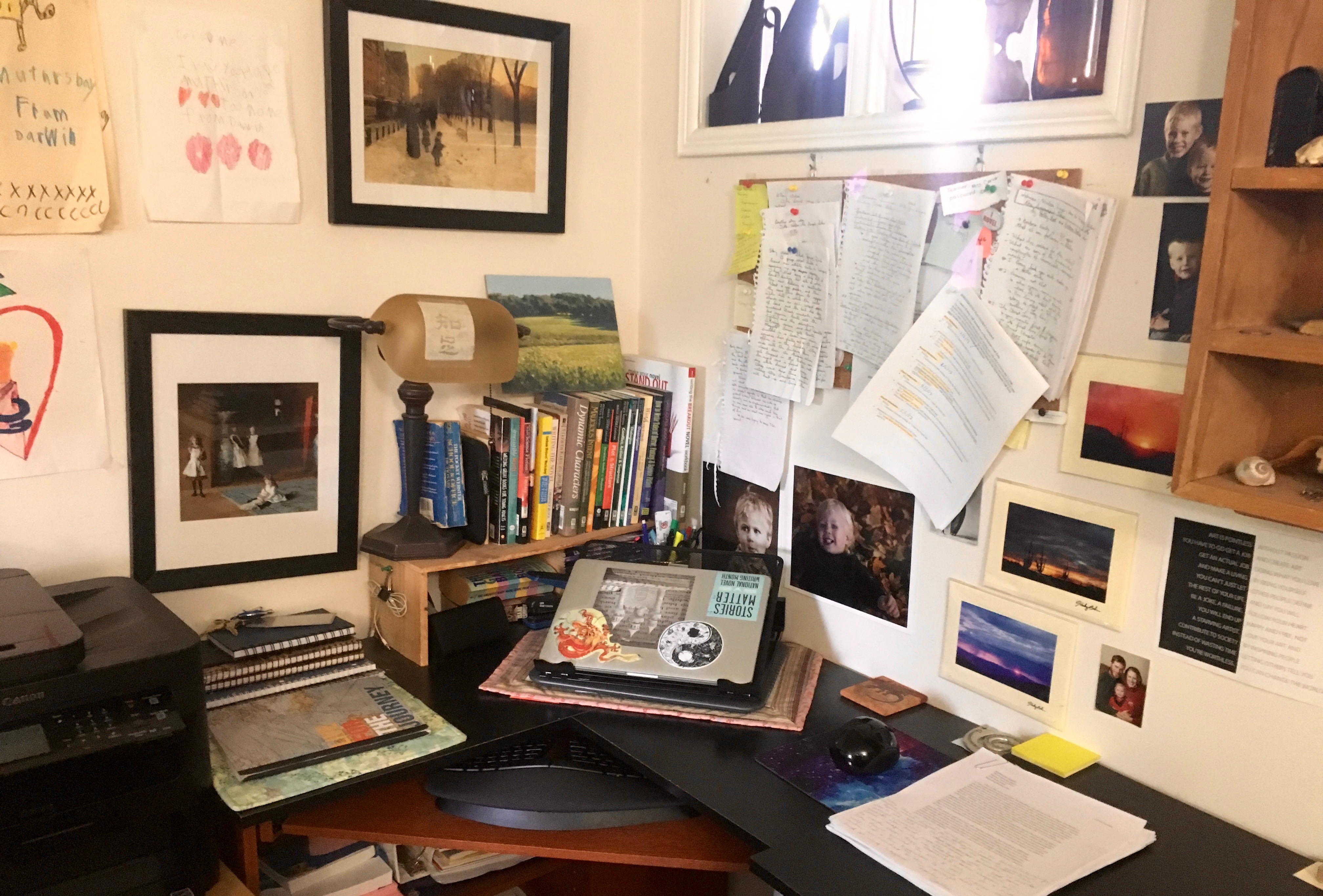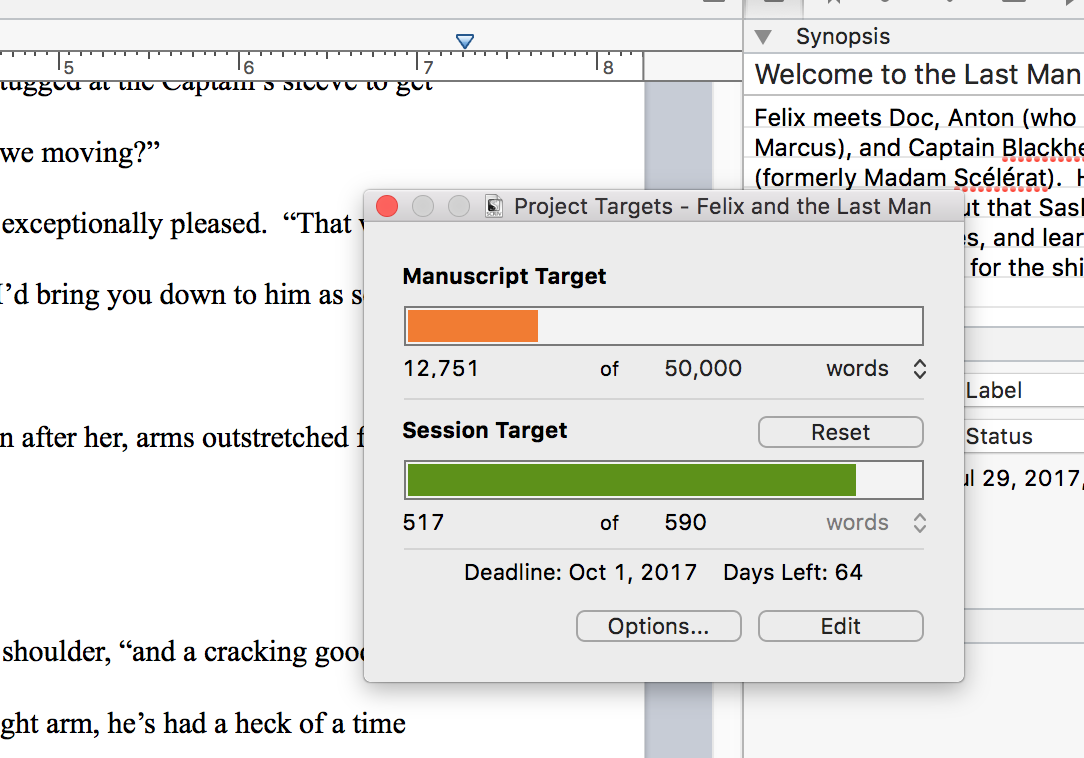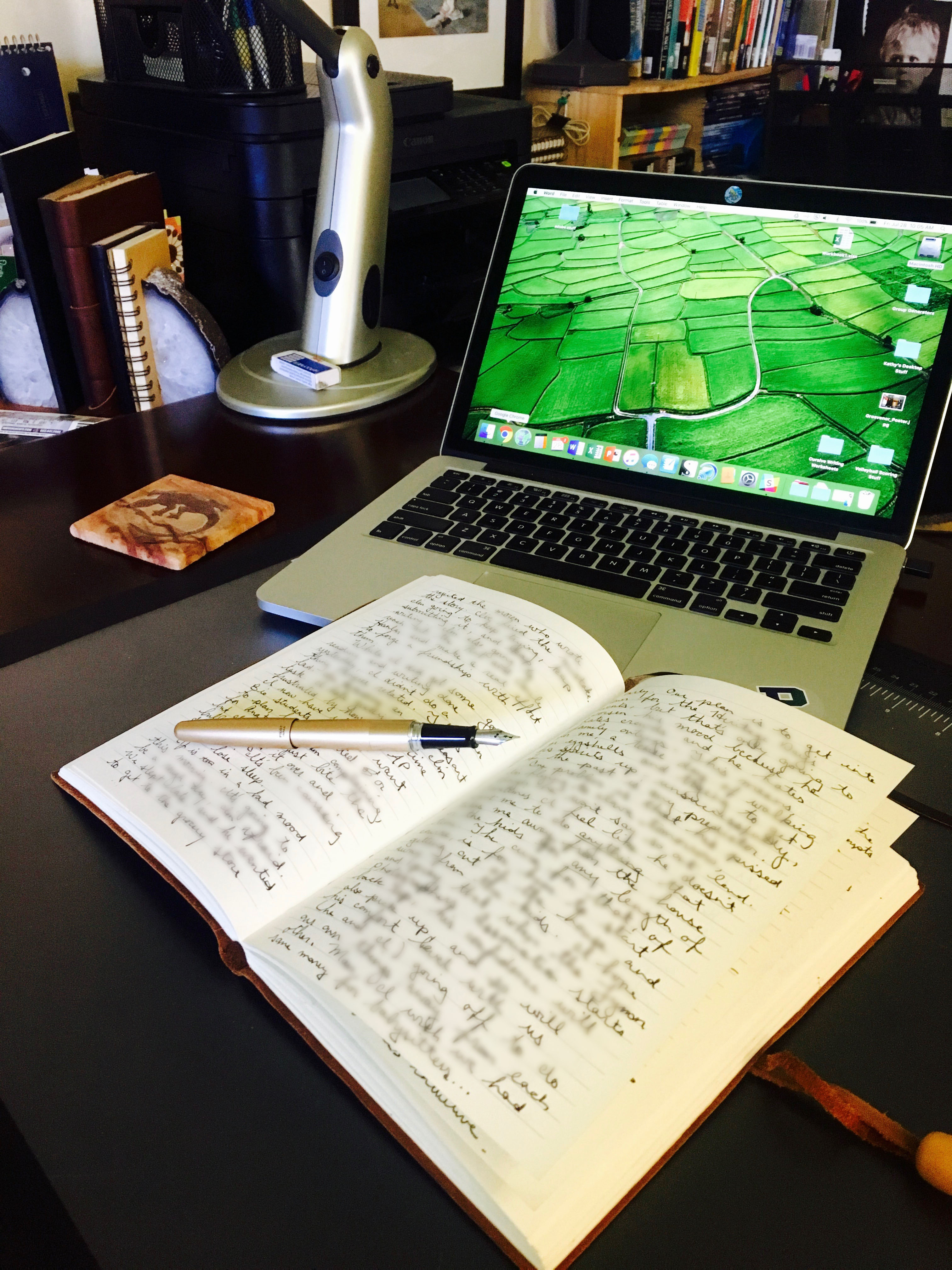I swear my kids want me to flunk out of grad school. They also might be psychic, because when I sit down at my desk to check email or indulge my Facebook addiction, they happily find quiet and unobtrusive ways to keep themselves occupied (okay, I have time management and procrastination issues). The moment my fingertips touch my keyboard for the purposes of doing some actual creative writing, the little demons arrive at the office door and demand my undivided attention. True, my six-year-old is my primary antagonist in this battle. My ten-year-old less so, but he is not an innocent bystander by any means.
Do I want to build with Legos? Do I want to play a board game? I’m bored. There’s nothing to do. I’m hungry. Can I get them something to eat? No? Well, then, let’s up the ante. How about a game of chess, Mommy? It’s educational, my youngest will point out to me in angelic tones. Do you know how hard it is to say no to a kindergartener pleading with you to play chess, for goodness sake?! You instantly feel like a terrible person for saying no to that one, and my evil little demon knows it.
If by some miracle, I manage to stay strong and say no to all of these requests, there’s always Plan B. Commence with Operation Escalation. They will begin to fight, loudly, about anything and everything. You’re on my side of the couch! I’m using that blanket! I was playing with that! You knocked that down/destroyed that on purpose! You’re cheating at this made-up game that has no rules! You’re punching too hard! The point of the argument is irrelevant, only that the battle escalates until one of them is injured and crying. Oh, yes, they are devious, diabolical strategists.
My husband does intervene on my behalf… sometimes. At other times, though, he retreats to his art studio in the basement and pretends not to hear what’s happening. I don’t begrudge him this. That’s a lie. I totally begrudge him this. In fact, I want to murder him in those moments, even though I simultaneously understand his reasons for it. The problem is that by the time I get home at close to six o’clock from a long day of teaching science to high schoolers, he’s already been on kid duty for three and a half hours, and our kids are human tornadoes in the afternoons. They’ve been pent up inside an elementary school classroom all day. Even the mile and a half walk home does little to vent their pressure-cooker energy. He can boot their butts out into the back yard on days when the weather permits it, but even then, he has to stay alert for sounds of outraged or injury-induced screaming. So, I get why he succumbs to the temptation to go “off-duty” when dinner is done, and the kitchen is cleaned up. That doesn’t mean I don’t mentally curse him to eternal damnation from my spot at my writing desk when I’m looking at a blank page, and my kids are screaming in the other room.
I want to yell at people when they lament that they can never “find the time” to write. Yeah? Well, neither can I. Why? Because it doesn’t exist. There is literally no time to write, no magical empty block with nothing going on where I can sit down with a steaming mug of cozy chamomile tea and put on some relaxing classical music and snuggle in my fluffy PJ’s and write. Nope. If I’m going to write, I must MAKE time to do it. I must set boundaries, barricade the door, and defend my selected hour like the violently seized territory it is. If I let my guard down, that time will be taken right back from me. There are 101 articles and blog posts that offer use struggling saps tips for carving out time in our busy lives for our writing. Here’s a good one from Writer’s Digest. I’ll let them tell you what to do, because (if you haven’t figured it out yet) I am a hot mess and shouldn’t be giving anyone suggestions on how to do anything.
Sometimes I literally leave. I pack up and head to the local library or to a coffee shop. That works, but it breeds resentment and strains marital relations, so I leave those trips to do-or-die deadline situations. More often, I will abandon my office space for my bedroom, which has a lock on the door and is upstairs from the chaos. I will put on my headphones and drown out all attempts at Plan B that may erupt below. My husband feels better because he knows that, should a genuine emergency occur, I am still close by. My children seem to be slowly adjusting to the fact that mom is in grad school and that grad school trumps their need for my undivided attention.
Maybe this will be good for all of us. My kids might finally learn how to self-sooth. My husband is learning the fine art of reheating leftovers (though let’s give credit where credit is due: he does 90% of the cooking already because I’m not so great at cooking things that are edible). Who knows? I might actually get my MFA in creative writing. I’ll let you know how it goes, but right now I’ve got some writing to do.
(I’ve been told that bloggers are supposed to end their posts with questions designed to jump-start a discussion in the comments thread. I’m pretty sure no one has stumbled across this secret little blog, but I may as well engage in best practice blogging, right? After all, when I’m a successful and famous YA author, I’ll probably have to keep an actual author’s blog where I can interact with my thousands of awesome fans… sigh. We have to dream, folks. Anyway, here’s the leading question(s): are you in a similar position as me? What things in your life vie for you time and pull you away from your writing? Are you able to resist? If so, what are your strategies? Do share!


 Let me be clear. I will never give up my fountain pens and my notebooks, both of which I collect like someone with a problem. Whatever. Some people collect Hummel Dolls. Some people collect Beanie Babies. I collect fountain pens and notebooks… and a few other things, but that’s a whole different post. When I am feeling stuck for ideas or just creatively drained, nothing greases the hinges and swings wide the doors to my imagination like writing with a gorgeous fountain pen loaded with some of my favorite ink in one of my favorite notebooks. So great of an advocate of this strategy for breaking up creative writing blocks am I that I regularly buy and distribute fountain pens (pre-inked with some of my favorite inks obtained via the
Let me be clear. I will never give up my fountain pens and my notebooks, both of which I collect like someone with a problem. Whatever. Some people collect Hummel Dolls. Some people collect Beanie Babies. I collect fountain pens and notebooks… and a few other things, but that’s a whole different post. When I am feeling stuck for ideas or just creatively drained, nothing greases the hinges and swings wide the doors to my imagination like writing with a gorgeous fountain pen loaded with some of my favorite ink in one of my favorite notebooks. So great of an advocate of this strategy for breaking up creative writing blocks am I that I regularly buy and distribute fountain pens (pre-inked with some of my favorite inks obtained via the  I love the corkboard feature for organizing my chapters. I love its pre-generated templates for character development. I love its split screen, its compile feature, and its project analytics. Holy cow, do I use the words “look” and “gaze” and “glance” a lot in my first drafts. There are hundreds of other features embedded into this program that are also super wicked lots of awesome, but the feature that caused me to fall in forever love with Scrivener is its Project Target feature.
I love the corkboard feature for organizing my chapters. I love its pre-generated templates for character development. I love its split screen, its compile feature, and its project analytics. Holy cow, do I use the words “look” and “gaze” and “glance” a lot in my first drafts. There are hundreds of other features embedded into this program that are also super wicked lots of awesome, but the feature that caused me to fall in forever love with Scrivener is its Project Target feature.